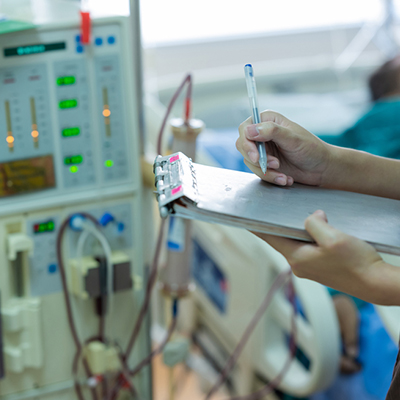Renal Hypertension Treatment in Anantapur
Hypertension, commonly referred to as high blood pressure, is a significant health issue that impacts nearly half of all adults and needs Renal Hypertension Treatment in Anantapur. The most prevalent form of hypertension is primary hypertension; however, there are various types of secondary hypertension that arise when a specific underlying cause is identified. Renal hypertension, which pertains to the kidneys, occurs when high blood pressure results from the constriction of arteries supplying the kidneys. If not addressed, this condition can progress to kidney failure. Renal hypertension is the leading type of secondary hypertension and is primarily induced by kidney disease. Modifications in lifestyle and appropriate medical interventions can assist in managing this condition.
Causes of renal hypertension
It is estimated that approximately 90% of cases of renal artery stenosis are attributed to atherosclerosis, which is characterized by the narrowing of arteries due to the accumulation of plaque, a sticky substance that builds up within the arterial walls as per Renal Hypertension specialist in Anantapur. The likelihood of developing this condition may increase if you have the following health issues or challenges to deal with

- Diabetes
- Insulin resistance
- Elevated blood cholesterol levels
- A history of smoking
- obesity
- A diet rich in cholesterol, fats, sugars, and sodium
- A family history of early-onset cardiovascular disease
Additionally, the risk of developing this condition tends to rise with advancing age as per Best Kidney doctor in Anantapur, Dr. M. Surendra Babu
Symptoms
Renal hypertension and renal artery stenosis frequently remain asymptomatic until they reach an advanced stage, as noted by medical professionals. Nevertheless, progressive deterioration of kidney function may occur over time. Notable reductions in kidney performance can lead to various symptoms, including
- swelling in the legs, feet, and ankles (edema)
- fatigue
- generalized itchiness or numbness
- alterations in urination frequency
- headaches
- dry skin
- changes in appetite
- weight loss
- nausea and vomiting
- difficulty concentrating
- sleep disturbances
- muscle cramps
Should a physician or Nephrology specialist in Anantapur indicate that you might be experiencing renal hypertension, they will typically begin by reviewing your medical history and conducting a physical examination. It is possible that they will utilize a stethoscope on your abdomen to detect any sounds indicative of narrowed arteries.
Renal hypertension exerts significant stress and elevates pressure on the kidneys, serving as a primary contributor to end-stage renal disease, commonly referred to as chronic renal disease, particularly among the elderly population. Individuals suffering from end-stage renal disease necessitate either dialysis or kidney transplantation. Renovascular hypertension should be considered when hypertension manifests before the age of 30 or after 50, or when previously stable hypertension becomes increasingly challenging to manage with pharmacological treatment.
